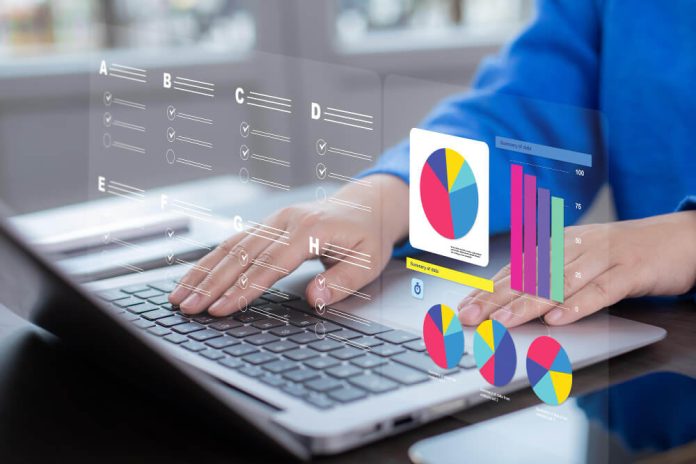Businesses are constantly seeking ways to leverage customer data to improve engagement, marketing efficiency, and business growth. This is where a Customer Data Platform comes into play. A CDP is a centralized software solution that consolidates and unifies customer data from various sources to create a single, comprehensive customer profile. For B2B companies, this is crucial for delivering personalized experiences, enhancing customer relationships, and optimizing marketing strategies.
What is a Customer Data Platform?
A Customer Data Platform (CDP) is a software system that collects, organizes, and manages data from multiple touchpoints such as websites, social media platforms, email campaigns, CRM systems, and more. It brings all of this data together to create a unified and accessible customer profile. This profile is then used to improve targeting, enhance customer experiences, and drive data-driven marketing decisions.
Unlike traditional data management tools, a CDP is designed to handle large volumes of structured and unstructured data, allowing businesses to gain deeper insights into their customers’ behaviors, preferences, and needs. It is especially valuable for B2B marketers who deal with complex buying processes and need a clear understanding of customer interactions across multiple channels.
Key Benefits of Implementing a Customer Data Platform
1. Unified Customer Data
One of the biggest advantages of a CDP is its ability to unify customer data from various channels and systems. In the B2B world, customer data is often scattered across different platforms—sales systems, marketing automation tools, and customer service platforms. A CDP consolidates this data, giving businesses a holistic view of their customers and enabling more informed decision-making.
2. Personalized Marketing Campaigns
With a comprehensive view of customer data, B2B marketers can craft highly targeted and personalized marketing campaigns. A CDP allows businesses to segment their audience based on factors like purchasing history, behavior, and preferences. This segmentation helps deliver the right message at the right time, significantly improving customer engagement and conversion rates.
3. Enhanced Customer Experiences
B2B customers today expect personalized interactions. With a CDP, businesses can provide seamless, relevant experiences at every touchpoint. Whether it’s through email marketing, website content, or targeted ads, a CDP ensures that customers receive tailored experiences that align with their interests and behaviors. This not only increases satisfaction but also boosts long-term customer loyalty.
4. Improved Data Accuracy
Data silos and inconsistencies are common challenges for B2B companies. A Customer Data Platform eliminates these issues by creating a single source of truth for all customer information. This ensures that all departments—whether sales, marketing, or customer service—are working with accurate and up-to-date data. In turn, this leads to better collaboration and more effective strategies.
5. Data-Driven Decision Making
B2B organizations rely heavily on data to drive their strategies. A CDP equips businesses with real-time data analytics, enabling decision-makers to identify trends, measure campaign performance, and uncover new opportunities for growth. By leveraging these insights, B2B companies can make smarter, data-driven decisions that improve their marketing ROI and overall business performance.
How Does a CDP Differ from Other Marketing Tools?
It’s important to understand that a Customer Data Platform is not the same as a Customer Relationship Management (CRM) system or a Data Management Platform (DMP).
- A CRM primarily stores customer information and interactions but often lacks the advanced data integration and segmentation capabilities of a CDP.
- A DMP focuses on managing third-party data for advertising purposes, whereas a CDP deals with first-party data collected directly from your customers.
A CDP combines the strengths of both tools while providing deeper insights into customer journeys and behaviors. It serves as the foundation for building personalized marketing campaigns and driving more meaningful customer engagements.
Why B2B Companies Should Invest in a Customer Data Platform
Investing in a Customer Data Platform is no longer optional for B2B companies that want to stay ahead of the competition. As businesses continue to generate massive amounts of customer data, it becomes increasingly difficult to manage and analyze this information effectively. A CDP offers a scalable solution for B2B marketers to harness the power of customer data, deliver more personalized experiences, and drive long-term growth.
With data privacy regulations like GDPR and CCPA becoming stricter, B2B companies need to ensure they are handling customer data responsibly. A CDP helps businesses stay compliant by providing a secure and centralized platform for data management.
Conclusion:
A Customer Data Platform (CDP) is a game-changer for B2B organizations seeking to leverage customer data to enhance their marketing strategies and improve overall business performance. By unifying data, enabling personalized marketing, and providing real-time insights, a CDP empowers businesses to make data-driven decisions that drive growth. For B2B professionals looking to optimize customer experiences and maximize ROI, adopting a CDP is a strategic investment that delivers long-term benefits.
In a world where customer data is king, leveraging a Customer Data Platform is the key to staying ahead in today’s fast-paced B2B market.
I hope you find the above content helpful. For more such informative content please visit Techadvisor Pro.










